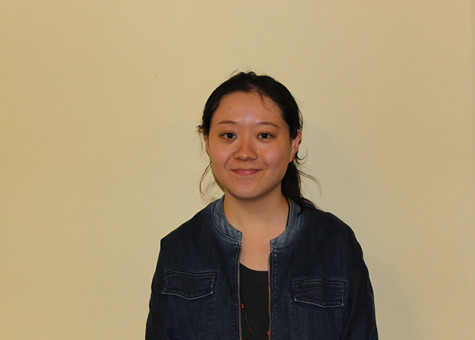A multimedia and digital culture major’s formation is under way at Pitt-Johnstown.
“It is still going through the application step,” said Humanities Division Chair Patty Derrick.
It has gone to the Provost’ s Office at the Oakland campus.
Regarding course structure in the new major, Derrick said students will need to take three levels of courses to graduate.
The foundation courses will include a new course called Digital Tools and Technology. The other two foundation courses are Introduction to Digital Humanities and Interactive Fiction as Literature.
Derrick said Introduction to Digital Humanities has been offered for two years and had more than a capacity of students enrolling.
Derrick said the large number of students in this class’ waitlist made her and other Humanities faculty sense the popularity of inquiries in this new subject area.
“Our (program) will be the first in the Pitt system.”
As students enter the intermediate level, they can choose a concentration in any Humanities’ discipline offered at Pitt-Johnstown.
To be graduated, a student must then take a capstone course, in which he/she creates an electronic portfolio.
Derrick said she hopes the program will be up and running in the fall.
She said she expects many incoming students to take it as their primary major, as many high school students have asked for this type of program.
The uniqueness of the program combines conceptual learning and actual experience together, so that they benefit a student’s practical job application, she said.
A new faculty member will be hired initially to teach the foundation courses.
“If we anticipate more sessions in foundation courses, we will hire a second person to pick up the staggered courses,” said Derrick.
“Right now we will continue (these courses) to be general-education.”
Jeremy Justus, English literature assistant professor, said he taught the Introduction to Digital Humanities and now teaches Interactive Fiction as Literature.
Interactive Fiction is created by readers’ input, according to Justus, and has a long history.
They were first originated from riddles, and these literary machines were more like computer games.
In the late 1970s, a company called Infocom created more interactive fiction, and they were sold to personal-computer users as games.
They became popular at the time, even through personal computers were rare.
Interactive fiction is similar to Siri, which is also a kind of artificial intelligence that can interact with people, but they answer different kinds of questions and they can give clues and descriptions to readers.
“Contemporary works of interactive fiction, like Emily Short’s Galatea, attempts to give us characters with whom he can converse and relate,” Justice said.
He said ideally one should feel as though the fictions are real, but, never forget that they are stories.
The class has included 14 students. Senior David Paronish, who majors in philosophy and literature, said he enjoys being in the class that allows for open expression and also relates to his philosophy interests.
“Overall, I would say that Interactive Fiction is fun, irritating and slightly addicting,” said Paronish.
Justus said the new major is a multi-disciplinary area that involved works from professors from different Humanities subjects.
He attended a weeklong conference, Digital Humanities Summer Institute, in Victoria, British Columbia, which many important scholars in the field attended, to learn how to construct the new major.
Freshman Megan Haney, a history major, said she is not sure whether she would take a course in this field, because she is good with technology, but not programming.
Freshman Montana Mang, an undeclared student, said she will not take these classes because she is not interested. However, both students agreed that it is an age that technology is everywhere.
“I can see a lot of people taking it (the major). It would be used for everything regarding technology,” said Haney.
“Every major is connected with this (new major),” said Mang.

